I started and got into running in 2009 because I was challenged by how the kids out ran me on the first race that I joined. They were like inexperienced, thin, and little kids somewhere between 7 to 10 years of age. And there I was, pumped and buff, psyched up to finish first in the race . But I couldn't totally understand why they seemed to have all the oxygen and finished first and I was in fact about a kilometer behind.
I never forgot that race and that's been my motivation on how to run continuously; and because of my passion in fitness, I was able to get it right and even ended up in the covers of magazines.
Now It's Time that you learn how to run the "G.O.P.A.A." way. I coined this abbreviation which is actually a method so you will understand that there is a proper way to approach running. But first, I would like to tell you why I got this method, since that time when I wanted to prove that I can outrun the kids.I ran almost everyday wearing a pair of ridiculously expensive shoes and the mentality of pushing yourself hit me hard, literally! I experienced pains regularly until such time that it got so painful I had to stop and assess what's wrong. Plantar fasciitis, shin splints, stress fracture, and iliotibial band syndrome were among the injuries I got from poor knowledge and understanding about the proper way of running. So I went into google and did more research.
I came across the subject of how running (as a sport) started, and what is the natural way to do it. Good thing I was directed to Christopher Mc Dougall's book "Born to Run".
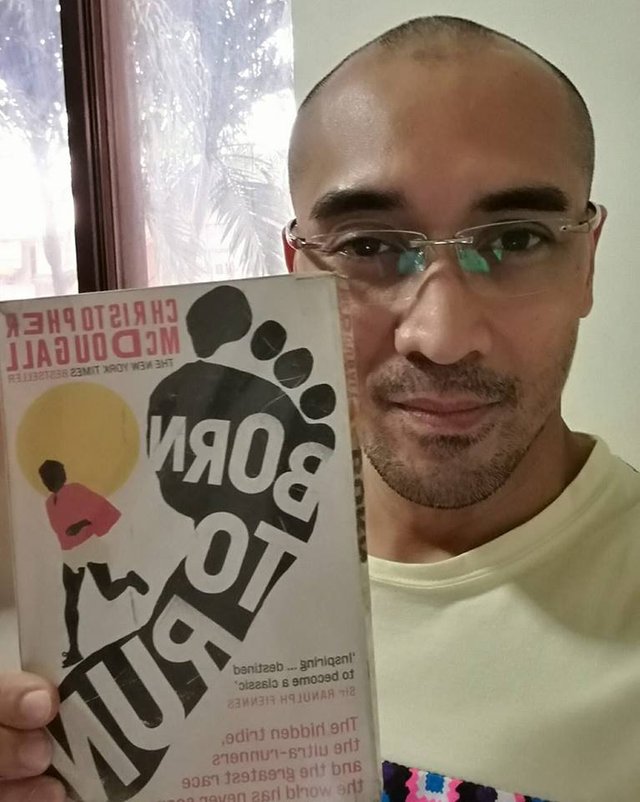
Basically, he said that our ancestor from 1000 years were already into running and they didn't experience any injuries, and they were running everyday to catch the deers and boars for food. The surprising thing is, they were running with bare feet or just wearing sandals made of animal skin. They were thin, no cushioning technology, just cut off leather, no snug fit technology, not even laced properly. To cut the long story short I decided I should try running like our them, barefooted! Yes, naka-paa lang.
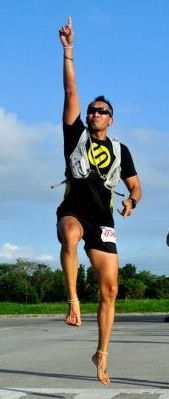
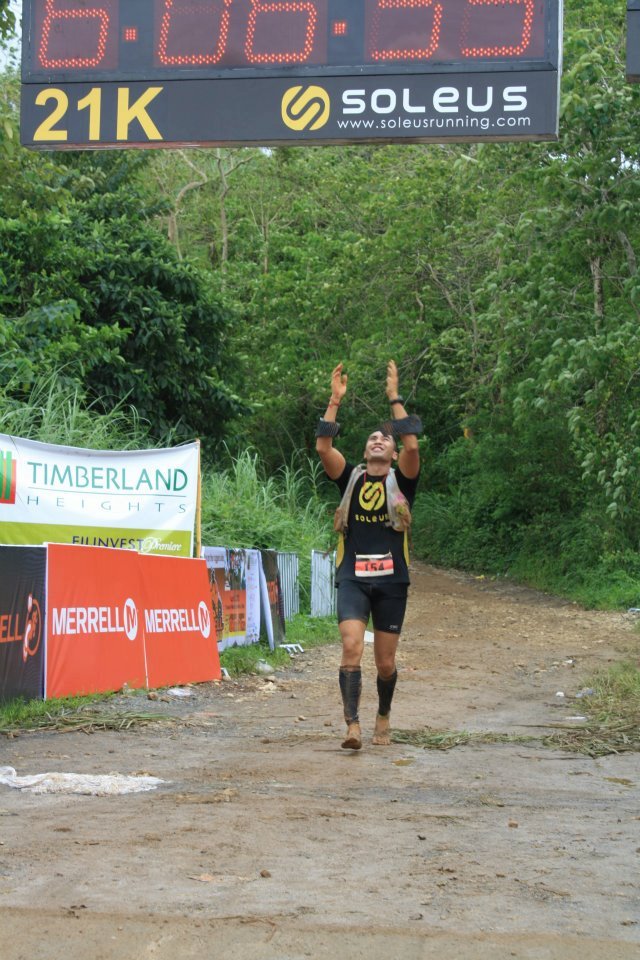
Yes, I was running on different pavements, even on trails and muddy hills. I always gave glory to God and offered every run to Him. Every race or run I do, I asked my wife or kids to write Bible verses on my foot.
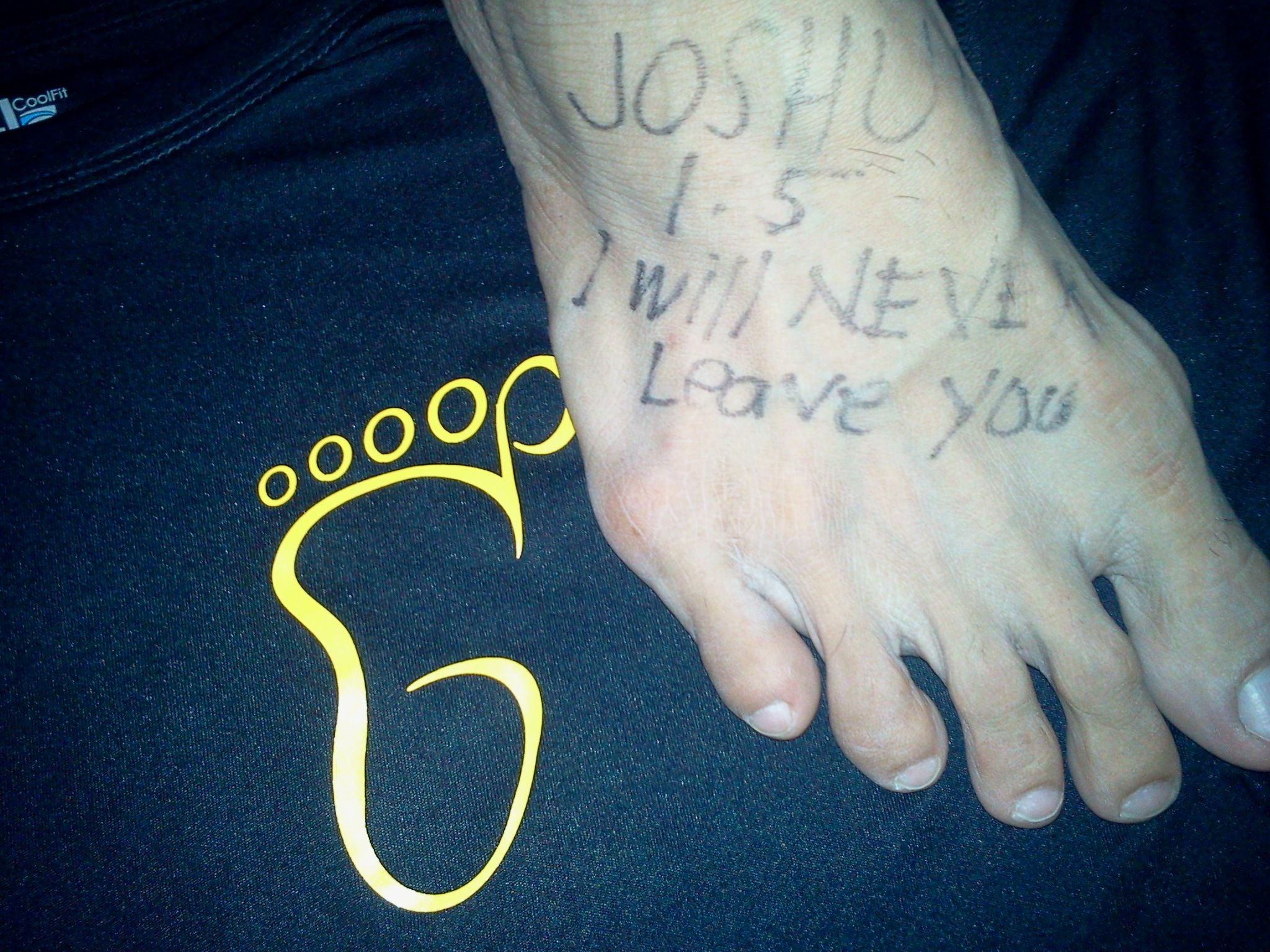
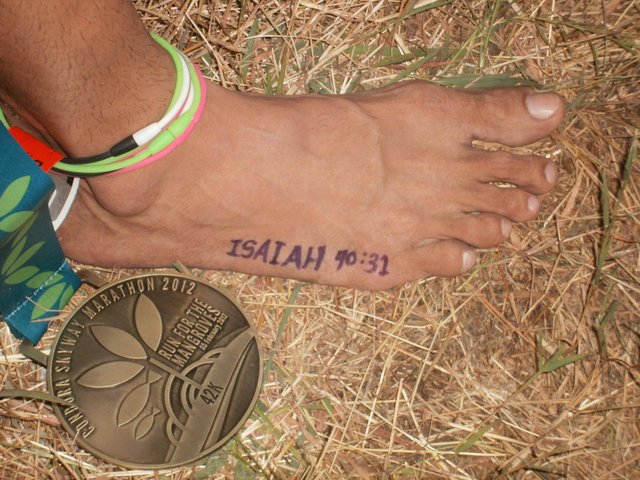
A few brave souls got interested in what I was doing and I shared my new found method to them.
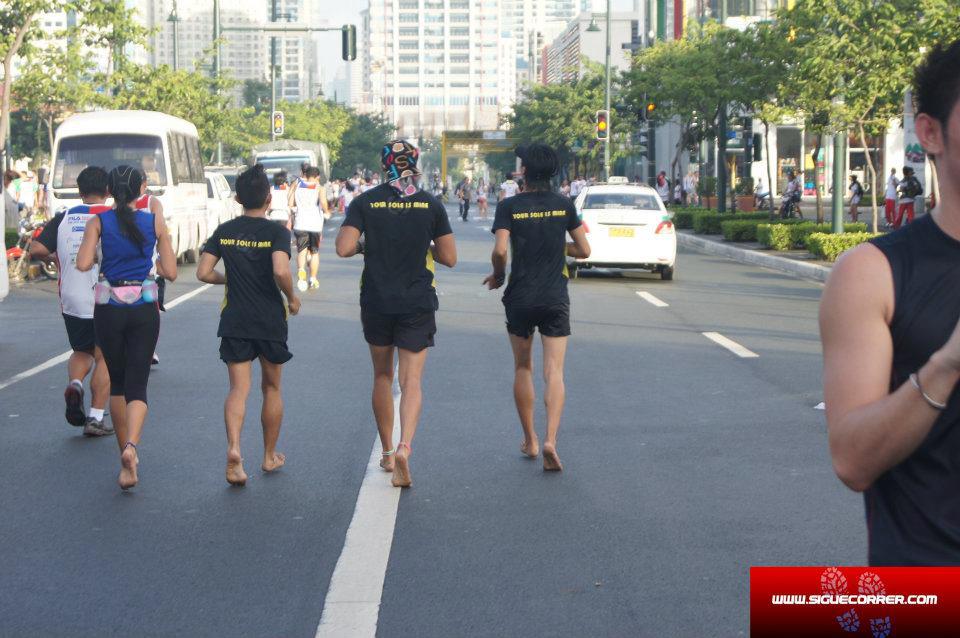
So let's get into the G.O.P.A.A. method!
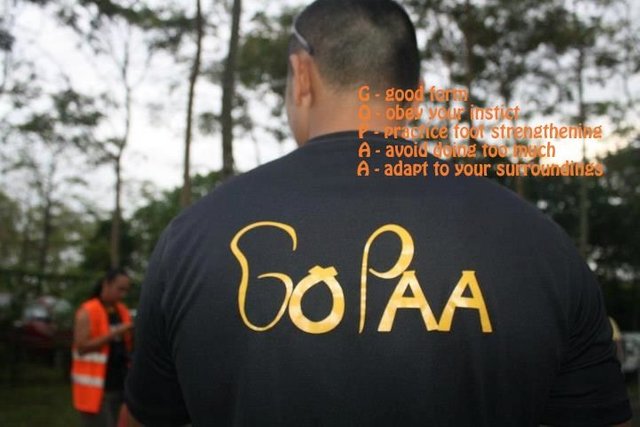
G for Good Form- Never compromise your running form. Always run upright, try to imagine the side view of yourself, and also imagine a straight line from your ears down to your hips then down to your ankle. Never slouch or bow down as you run.
O is Obey your Instinct- When you feel pain, don't ignore it. Either you adjust your form or stop and check out what's wrong. When you're starting, never have the mentality of pushing yourself beyond your limitations.
P is for Practice. Learn what muscle parts are needed in running and work on strengthening them. From your foot muscles, to your calf muscles, to your quads, your hamstrings, your core, your arms for arm swings, to your lower back and glutes. Those are the muscles you need for running so, practice the movement and devote yourself to making all of them stronger.
A - Avoid doing too much. Running should always have the right progression, if you want to train to run a full mary or 42 kilometers, you can't just run join races without proper progression; let's say running 5km the first week then join a 10km race the week after that, 21km race in two weeks and expect that after just 3 months you'll be able to do a full marathon. Well, you could, but not without aches and pains. I believe you will most likely turn your back from the sport because it requires more time of training to do a long-distance race safely.
Lastly, the other A is Adapt- to your surroundings, your environment, your schedule. I love running and it brings me to a different level of meditation. It always becomes a quiet time with God. Praying, singing praise songs the whole 42km or 5 hours of communication with Him. I also enjoyed having conversations with fellow believers while running. Work around your schedule. Don't let running be a burden. If you can adjust your schedule in the morning, I believe that it's the best time to run to get the best quality of sunshine and air, especially in the city. Run happy and learn to appreciate the wonderful creation of our Father in Heaven.
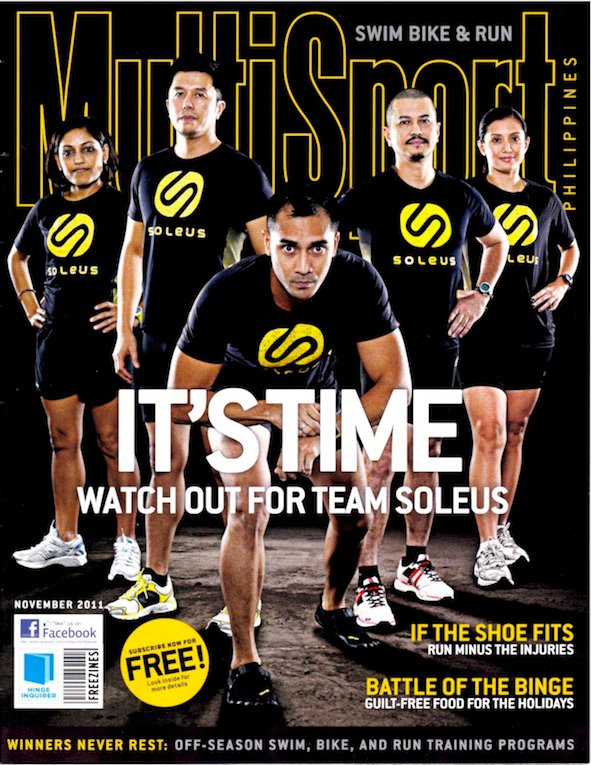
This is interesting to me. I love running around in the woods and beaches barefoot but have never really tried it on pavement. When you were first starting off barefoot, how far did you run at first?
Cheers - Carl
Downvoting a post can decrease pending rewards and make it less visible. Common reasons:
Submit
Carl, I tried it on the rubberize oval field. I started with 400m barefoot walking first. That's after 3km shod running, then I always increase by 400m.
Downvoting a post can decrease pending rewards and make it less visible. Common reasons:
Submit
Great read Honey! Very entertaining and highly educational!
Downvoting a post can decrease pending rewards and make it less visible. Common reasons:
Submit
Thanks honey, I remember you tried barefoot running too.
Downvoting a post can decrease pending rewards and make it less visible. Common reasons:
Submit